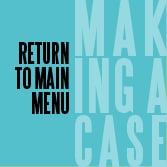- Heritage 101
- Advocacy
- Accessibility for Historic Places
- Climate & Sustainability
- Cultural Maps
- Heritage Place Conservation
- Heritage Policy & Legislation
- Homeowners
- Intangible Cultural Heritage
- Reconciliation
- Indigenous Cultural Heritage
- Setting the Bar: A Reconciliation Guide for Heritage
- 1. Heritage and Reconciliation Pledge
- 2. Acknowledging Land and People
- 3. Celebrating Days of Recognition and Commemoration
- 4. With a Commitment to Learn
- 5. Committing to Strategic Organizational Diversity
- 6. Mission-Making Room for Reconciliation
- 7. Possession, Interpretation, Repatriation and Cultural Care
- 8. Shared Decision Making
- 9. Statements of Significance and other heritage planning documents
- 10. Heritage Conservation Tools, Local Government Act
- Racism: Do Not Let the Forgetting Prevail
- Taking Action: resources for diversity and inclusion
Making a Case for Heritage: The Bigger Picture
 This section will help you to describe heritage in a bigger context.
This section will help you to describe heritage in a bigger context.
The first part provides impressive statistics, and the second part provides ideas to help you develop your local case.
Culture, including museums and historic sites, is big business and is a proven contributor to BC’s economy.
Culture boosts BC’s GDP by more than $7 billion, the third highest of the provinces across the county. Culture’s contribution is 9 times greater than that of sports.
Culture is an economic leader.
The estimated direct economic impact of cultural industries in Canada was $61.7 billion. Cultural industries outpaced other major sectors such as agriculture, forestry, fishing and hunting ($29 billion); accommodation and food services ($38 billion); and utilities ($43 billion).
Museums and Cultural Heritage in B.C.
B.C.’s museums, galleries, cultural centres and historic places connect us to our history, art, science, creativity, culture, nature and each other.
- 11 million annual visitors to B.C. cultural heritage institutions*
- The collections of B.C. cultural institutions include more than 4.6 million artefacts and objects, 699,081 linear meters of textual records, 17.8 million graphic materials, 92,384 natural history/scientific specimens, 74,370 hours of film, video and sound recordings and over 2,300 permanent exhibitions*
- 33.7 million visits to museums’ digital collections*
- $213 million in revenue each year for BC museums
- 1 million volunteer hours by more than 21,000 committee volunteers
Developing a Local Story: The Bigger Picture
Use the intrinsic-instrumental-institutional framework to develop a well-rounded description of heritage in your community. Here are some suggestions to help you get started. (Read this short introduction to our recommended approach to making a case.)
Intrinsic
What are people saying about your museum/heritage site?
- Sometimes we receive priceless comments like, “Your organization was one of the reasons I moved here” or “I cannot imagine our community without your organization.” Consider community surveys that ask people to describe their association with your organization. Ask people to rate the importance of your organization to the community. See Making a Case for Heritage: Knowing Your Impact for two excellent methods to describe impact and support.
- Ask business leaders and politicians (past and present) for statements. Do not be afraid to tell them what you want them to say; sometimes you can go so far as to write a statement that they can edit and approve.
Instrumental
How can you count the ways you go above and beyond?
- Describe your outreach programs; for example, for a school program, consider the intrinsic values (e.g. What are the children saying?); instrumental values (e.g. How many children are involved and how often? What is your in-kind contribution?); and institutional value (how does the teacher, principal, superintendent describe the impact of your organization and your contribution to learning?)
- Consider your cash and in-kind contributions to community causes.
Institutional
How is your organization part of a bigger picture?
- Consider the ways your organization contributes to community causes and profile. Perhaps you donate space to an organization that serves families in need and you collect items for the food bank.
- Consider how you represent your community; e.g. attending or presenting at a conference; membership with provincial and national organizations.
- Describe how your organization profiles your community (e.g. multicultural exhibitions, special relationships with Indigenous organizations.
- (note: these may not seem like front and centre issues, but they help to paint a picture of an organization that sees beyond its own needs.)
Provincial and Territorial Culture Indicators, 2017 – Statistics Canada (source)
Desjardins, E. (2016). Provincial and Territorial Culture Indicators, 2010 to 2014. Statistics Canada (source)
